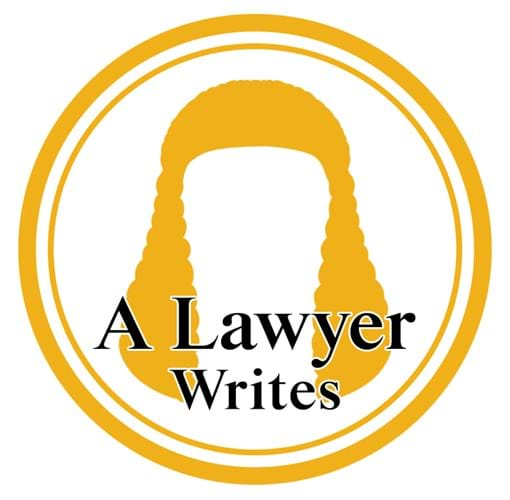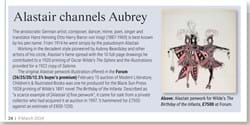The case of Dmitry Rybolovlev against Swiss art dealer Yves Bouvier deals with issues fundamental to the operation of the art world.
Bouvier sourced paintings for purchase by Rybolovlev, for tens of millions of dollars, and sometimes for over $100 million.
Rybolovlev - entirely by chance - happened to have a conversation with art adviser Sandy Heller - who referred to a client of hers that had recently sold a Modigliani painting for $93.5 million. Rybolovlev had purchased this painting from Yves Bouvier for $118 million.
It was, apparently, Rybolovlev’s understanding that Bouvier was acting as his agent and adviser and had been negotiating the best price for Rybolovlev.
When he discovered that effectively Bouvier had been acting as an independent dealer on his own behalf, he accused Bouvier of mis-representing the cost of artwork that Bouvier had acquired. Bouvier responded that he was free to sell artworks to Rybolovlev at a mark-up, i.e. effectively as an independent dealer.
The legal locking of antlers between Rybolovlev and Bouvier took place over many jurisdictions, including courts in Monaco, where Rybolovlev resides, Hong Kong, Singapore, Switzerland and France.
At stake was the issue of whether Bouvier was the agent of Rybolovlev, and the consequences or otherwise of this.
Critically, there was nothing in writing. There was apparently meant to be, but it never quite got there.
Sotheby’s was also accused and brought into proceedings - as assisting Bouvier in his endeavours.
Total sum claimed, that allegedly Bouvier was making over-the-top - without Rybolovlev’s knowledge - was apparently $1.1 billion.
You may care to bear in mind that whilst Bouvier paid Sotheby’s $80 million for the Salvator Mundi, and sold it to Rybolovlev for $127.5 million - a good example perhaps of Rybolovlev’s complaint - Rybolovlev sold it in on at Christie’s New York for a hammer price of $400 million in November 2017. Some people are never happy.
Legal actions against Bouvier began in 2015; all nine of the court cases filed in Singapore, Hong Kong, New York, Monaco and Geneva were discontinued by the authorities. All the allegations against Mr Bouvier were set aside by prosecutors and not a single court agreed to open a proper trial to review the accusations.
The final criminal investigation against Bouvier was closed by the Geneva Public Prosecutor's Office in December 2023 after prosecutors stated there was not "any evidence to raise sufficient suspicion against the defendants". Separately, Bouvier and Rybolovlev reached a settlement agreement in 2023.
Similarly, nothing stuck on Sotheby's. A US federal jury dismissed all allegations of fraud made by Rybolovlev against Sotheby's in January 2024.
Fundamental issue
The issues of Principal and Agency are fundamental to the art world.
Although this particular case did not actually involve the English jurisdiction, it is clear, given the allegations made and issues raised, that the legal questions are remarkably similar in England, in relation to the issues concerned.
Intermediaries, frequently in undefined capacities, are an integral part of the way the art world operates. ‘Art advisers’ is a common term used.
There are quite a few cases throughout the years on Principal and Agent relationships where they suddenly go very wrong.
One such - where the facts concerned certainly bear comparison with what can happen in practice in the world of art dealing - is Imageview Management Ltd versus Kelvin Jack.
This was a case about a footballer’s agent, whose conduct very much mirrored the issue which so vexed Rybolovlev.
The footballer’s agent had negotiated a two-year contract for his client with a football club. The agent’s remuneration was to be 10% of the footballer’s monthly salary which, as we all know, may amount to a great deal of money.
The contract, to which the Judge referred, provided that the agent was to “use his reasonable endeavours to promote the player and act in his best interests”.
At the same time as negotiating for the player to play for the club, the agent agreed that the club would pay the agent a fee of £3000 for getting a work permit for the player. This permit was needed because the player was a non-EU citizen.
The agent did not tell the player about this work permit contract. When asked about it a year after the event, the agent told the player: “It was none of your business.”
When the player found out about the work permit contract with the club, he stopped paying the 10% due under the agency contract.
The agent sued for the unpaid agency fees, but the player defended and claimed back all the agency fees he had already paid. He also claimed the full £3000 paid to the agent by the club for the work permit deal.
If a gallery, dealer, or intermediary on a football deal is acting as an agent, then they must be very careful how they conduct themselves in relation to their principal.
The football agent case went all the way up to the Court of Appeal after judgements in two lower Courts, including the High Court.
Here are some material discussions from the Court of Appeal Judgment.
Lord Justice Jacob said that if the footballer’s agent had been open and had told his client, the footballer, that he was going to negotiate himself a fee with the club, he could have avoided the problem.
Provided the player had no objection to the agent earning a fee from the club for getting the permit there would have been no issue, he concluded.
As the Lord Justice put it himself: “The law imposes on agents high standards. If you undertake to act for a man you must act 100% body and soul for him. You must act as if you were him. You must not allow your own interests to get in the way without telling him. An undisclosed but realistic possibility of a conflict of interest is a breach of your duty of good faith to your client.
“That duty should not cause an agent any problem. All he or she has to do to avoid being in breach of duty is to make full disclosure. Any agent who is doubtful about his position would do well to do just that ….”
This Judge quoted another important case on agency at great length, which I won’t do, but here are just a few words from the eminent law lord involved: “A principal is entitled to have an honest agent, and it is only the honest agent who is entitled to any commission. In my opinion, if an agent directly or indirectly colludes with the other side, and so acts in opposition to the interest of his principal, he or she is not entitled to any commission.”
The real-world effect of these fine phrases was as follows:
After much argument from both sides, the footballer’s agent had to pay back all of the fees he had received, and in addition had to pay all of the £3000 secret profit he had made from the club, to the player. In other words, the agent ended up with nothing.
Down in writing
A way round this is to ensure that there is a written agreement carefully defining both parties’ roles and entitlements.
In case of any subsequent legal dispute, this could make all the difference.
Milton Silverman is senior commercial dispute resolution partner at Streathers Solicitors LLP, London.











